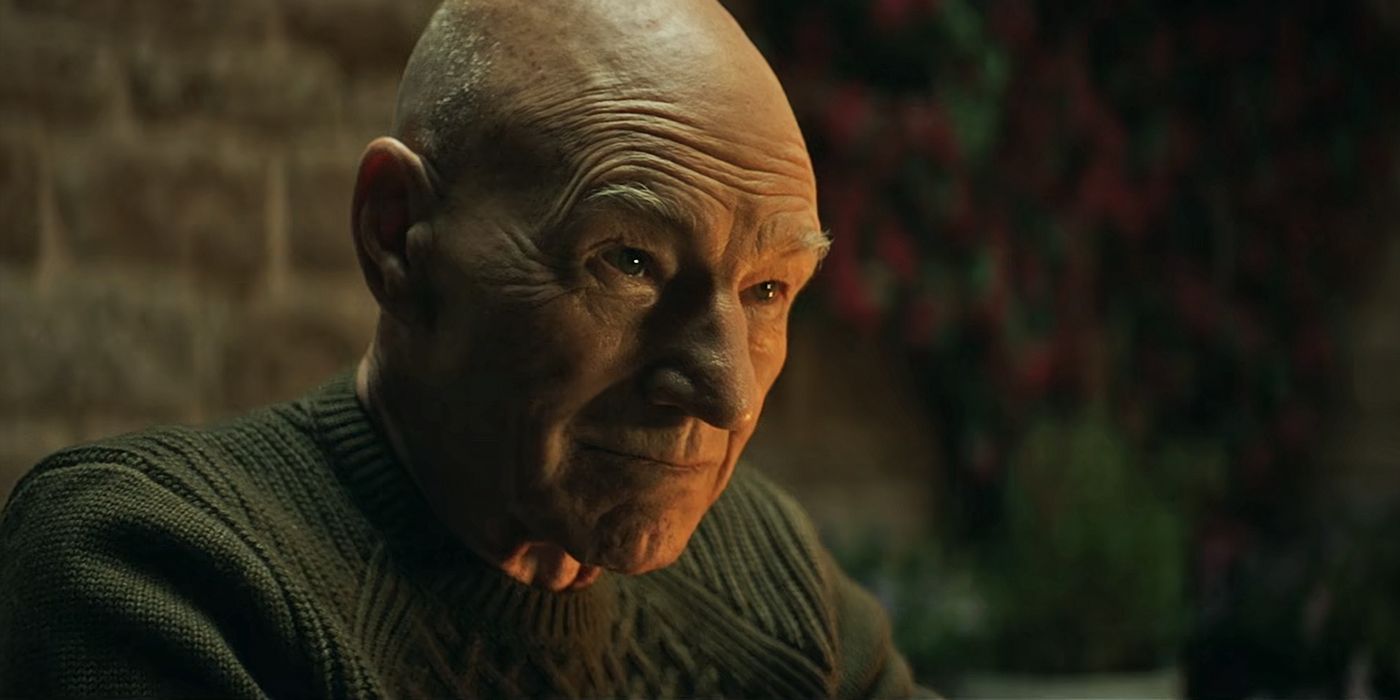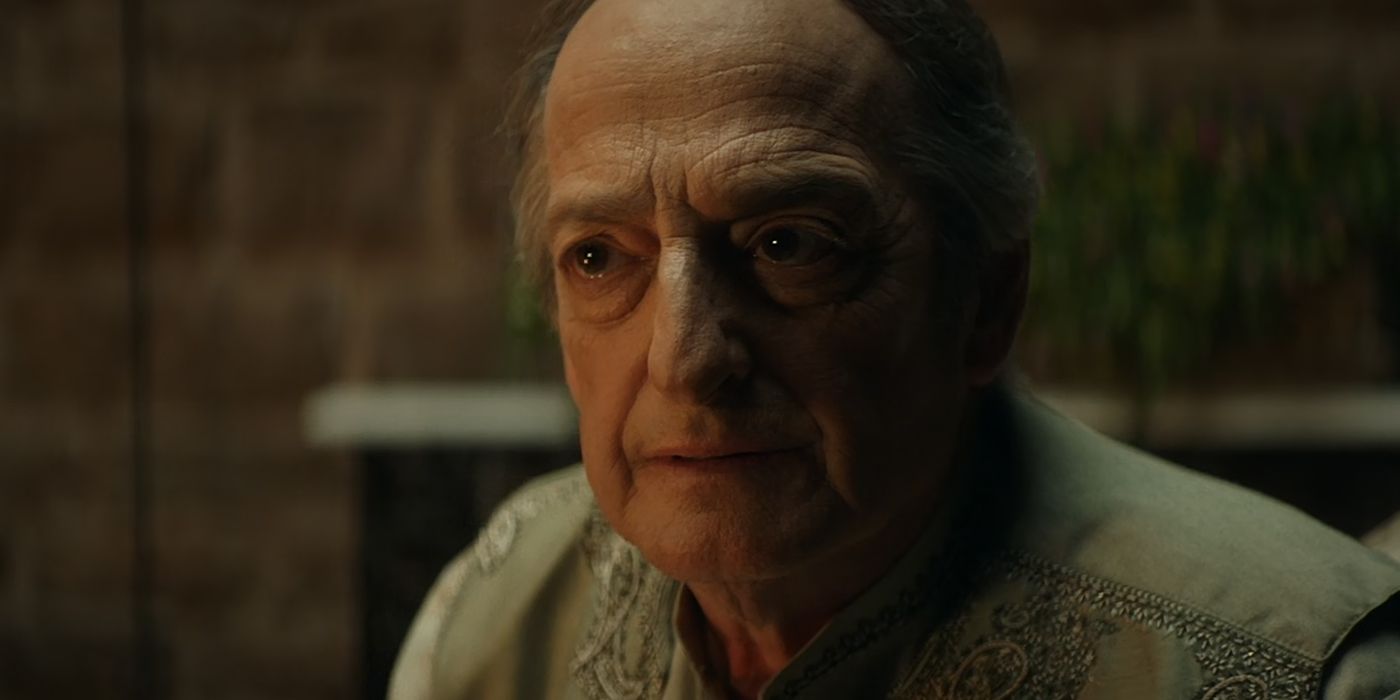WARNING: The following contains spoilers for Season 1, Episode 2 of Star Trek: Picard, "Maps and Legends," now streaming on CBS All Access.
Through its first two episodes, Star Trek: Picard has shown it's taken on a definitive tonal shift from the salad days of Star Trek: The Next Generation. But the new series is also not one to stray away from calling back to the show that first introduced us to Jean-Luc Picard. Echoes of the past have reverberated since the beginning of Picard, including the Romulans reappropriating Borg technology and the introduction of androids spun from Data's DNA.
But the latest TNG callback is it's most depressing yet, as Jean-Luc Picard has been given an expiration date.
The reveal comes when Moritz Benayoun, a doctor from Picard's previous ship, Stargazer, has a chat with the retired admiral. At Picard's request, he gave him a medical examination to clear him for interstellar travel, a stamp of approval that would be key for him to get the Starfleet support he needs for his new mission to find missing roboticist Bruce Maddox. The good news is that his scan came out with stellar results that show he's still capable, even in his later years. However, the bad news is that Picard has an abnormality in his parietal lobe, a sign of bad things to come.
Eagle-eared Trekkies may remember Picard's parietal issues being brought up before, as Jean-Luc vocalizes himself. In fact, the diagnosis comes from "All Good Things..." the epic series finale of TNG. In that episode, Picard finds himself traveling through the past, present, and future. The latter sends him forward 25 years, a simple man now working on a vineyard, not too dissimilar from the man we see in the Picard series premiere. However, this Picard has been recently diagnosed with Irumodic Syndrome, a neurological disorder and deterioration of the synaptic pathways. The condition causes confusion, delusions and eventually death.
As Picard spends the episode existing in between three time periods, he tries to recruit his old crew to his side. But his new condition causes them to take pause. While they would ordinarily follow their former captain to the ends of the galaxy, they now credit his thoughts of time travel to the side effects of Irumodic Syndrome. After finding out his new affliction, when Picard travels back to the present, he has Dr. Beverly Crusher give him a scan, where she finds a defect in his parietal lobe.
"It could cause you to be susceptible to several kinds of neurological disorders," she says, "including Irumodic Syndrome. Now, it's possible for you to live with this defect for the rest of your life without developing a problem. Or even if you do, many people continue to live normal lives for a long time after the onset of Irumodic Syndrome." Despite this, Picard works past the perceptions of senility to change history and save the galaxy once more.
Though the future events of "All Good Things..." became non-canonical once Picard changed the timeline, it appears some things have remained a constant. The parietal lobe defect has remained, and it still sits as a potentially grim prospect for Picard's health moving forward. Benayoun even makes reference to some side effects that he's already been experiencing to this point, including mood swings and unsettling dreams.
"It could be one of a number of syndromes," he says. "A few are treatable, but they all end the same way. Some sooner than others."
Picard, true to his stubborn but admirable nature, plows forward with his plan, requesting approval for interstellar travel from Benayoun despite the grim prognosis. But the news hangs in the air; the fan-favorite character's mental health will deteriorate, and it will probably end with his death.
Of course, it's highly unlikely that time will come soon. Not only is Picard named after the character, Patrick Stewart has also played a huge role throughout production so far. But the series was also renewed for a season 2, meaning it's safe to say Picard will survive the 10-episode first season. However, that may not mean he'll get through the events to come completely intact. What if his mission gets ruined at a climactic point by a "senior moment" caused by the onset of Irumodic Syndrome? Worse, what if the mounting onset of delusions leads to the death of another one of his crew members?
The introduction of the parietal defect into Picard could also mean a cameo from another TNG star. Doctor Beverly Crusher was the first person to diagnose him with it, and if Picard is looking for a second opinion, she would be an easy choice. That visit would be sure to be rife with drama, since the pair's romantic tension through the run of TNG was a foundational part of both their characters. It could be a nice way to bring in a cameo, reference Picard's past, and serve as a visit among friends, perhaps one last time.
Benayoun's visit ends on a triumphant note, as he asks Picard if he really wants to go back out into the cold of space, especially knowing he has an essential death sentence. Jean-Luc, a familiar twinkle in his eye, simply responds, "More than ever, knowing." Though his parietal lobe may fail him in the future, he's more adamant than ever in the present to not let that stop him from doing what's right.
Star Trek: Picard stars Patrick Stewart, Alison Pill, Michelle Hurd, Evan Evagora, Isa Briones, Santiago Cabrera and Harry Treadaway. A new episode arrives each Thursday on CBS All Access.



